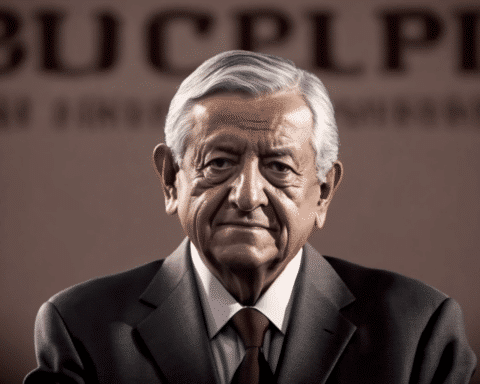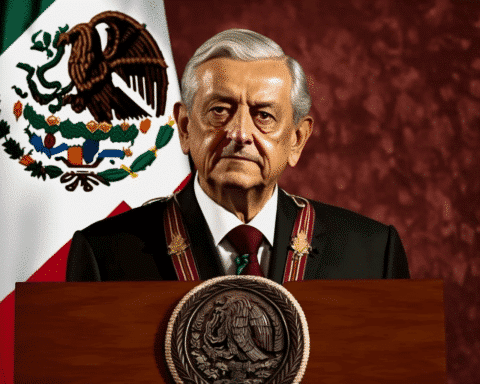As Mexico grapples with unprecedented climate challenges, the recent presidential victory of Claudia Sheinbaum, a former climate scientist and ex-mayor of Mexico City, has sparked a blend of hope and skepticism. Sheinbaum’s ascent to the presidency comes at a time when Mexico is experiencing severe environmental crises, including drastic water shortages and record-breaking heatwaves.
Sheinbaum’s professional background as a climate scientist who contributed to the Nobel Prize-winning Intergovernmental Panel on Climate Change reports is well-noted. However, her political tenure as mayor displayed a pattern where environmental priorities often took a backseat to political pragmatism. This approach has left many wondering if her administration will prioritize much-needed climate policies or follow in the footsteps of her predecessor and ally, Andrés Manuel López Obrador.
Under López Obrador, Mexico’s climate strategy has notably regressed. The emphasis was on “energy sovereignty,” which led to bolstering state companies and striving for energy self-sufficiency at the cost of environmental sustainability. This focus manifested in projects like a $17 billion oil refinery and significant financial support for Pemex, the world’s most indebted oil company and a major polluter. Consequently, nearly 80% of Mexico’s energy matrix now relies on fossil fuels.
These policies have positioned Mexico as one of only two G20 countries without a net-zero emission target. Moreover, the country is significantly off track from achieving its Paris Agreement goal to cut emissions by 35% by 2030. The devastating hurricane that struck Acapulco in October 2023, causing extensive damage and loss of life, was a stark reminder of Mexico’s vulnerability to climate change and the urgency for robust climate action.
During her campaign, Sheinbaum made promises that seemed to cater to all sides. She vowed to continue López Obrador’s policies while also committing to significant environmental reforms. Notably, she plans to persist with the Maya Train project, which cuts through Latin America’s second-largest tropical forest, and even suggested expanding it to Belize and Guatemala. Concurrently, Sheinbaum has proposed an ambitious $14 billion investment in clean energy projects, signaling a potential shift towards renewable energy sources.
Sheinbaum’s proposals emphasize the electrification of public transport and incentives for residential solar panels, leveraging Mexico’s abundant sunshine. However, details on these plans remain scant, and the full scope of her commitment to these initiatives is yet to be clarified. She has stressed the need for long-term planning for energy and water resources, aiming not just for 2030 targets but extending to 2050 and beyond.
The legal and regulatory landscape will be a critical arena for Sheinbaum, as adjustments there are essential for facilitating a shift towards renewable energy. The previous administration’s frequent legal and regulatory changes led to numerous court battles, which have created an unstable environment for potential investments in green energy.
The overwhelming electoral support for Sheinbaum’s party, Morena, which appears to have secured a supermajority in Congress and numerous governorships, provides her with a robust mandate. This political capital could be pivotal if Sheinbaum decides to diverge from López Obrador’s fossil-fuel-centric policies. Nonetheless, López Obrador remains a powerful figure whose support might be crucial for maintaining unity within Morena, a party known for its diverse ideologies and internal factions.
As Sheinbaum prepares to take office, the eyes of both national and international observers are on her. The environmental community remains hopeful yet vigilant, ready to hold the new administration accountable for its environmental promises. The coming years will be telling, as Mexico navigates the complex interplay of politics and climate policy under Sheinbaum’s leadership.




